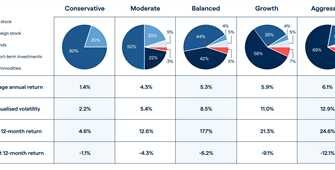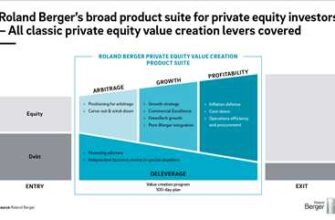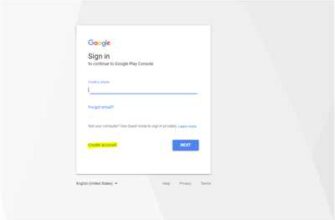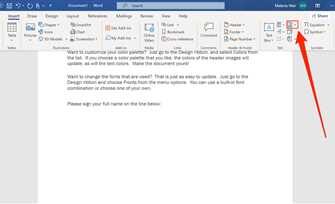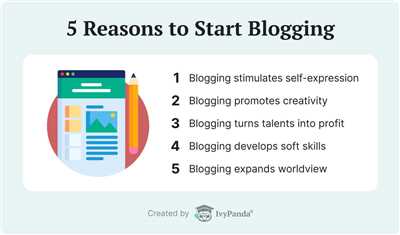
Are you ready to take the first step into the world of blogging? If you’re just starting out, it’s worth knowing that blogging means more than just creating an online journal. It’s a way to showcase your expertise and provide valuable information to your readers.
Before you begin, keep in mind that building a successful blog takes time and effort. But don’t worry, we have a step-by-step guide to help you get started!
Step 1: Choose your blogging topic
The first and most important step is to choose a topic that you’re passionate about. Blogging is a long-term commitment, and you’ll need to have a genuine interest in the subject to keep your readers engaged.
Step 2: Research your topic
Once you’ve decided on a topic, do some research to gather the necessary information. Look for existing blogs on the same subject and see what they’re writing about. This will give you a better idea of what topics are popular and what your potential readers might be interested in.
Step 3: Create quality content
Now that you have a topic in mind and some research under your belt, it’s time to start creating content for your blog. Remember, quality is key. Provide valuable information, answer common queries, and stand out from the competition. Make your blog the go-to source for all things related to your topic.
Step 4: Find your blogging voice
A successful blog has a unique voice that resonates with its readers. Find your own writing style and tone that suits your topic and personality. Whether it’s a professional tone or a more casual one, make sure it represents who you are and what your blog is all about.
Step 5: Engage with your audience
Don’t just sit back and wait for people to find your blog. Engage with your audience by responding to comments and encouraging discussions. This will not only create a sense of community but also help you understand your readers’ needs and preferences.
Step 6: Promote your blog
No matter how great your content is, it won’t mean much if people can’t find it. Use social media, SEO techniques, and other online marketing strategies to promote your blog and increase its visibility on search engines like Google. Proactively market your blog to attract more readers.
Starting a blog may seem daunting at first, but with the right approach and a little bit of time, you can turn your online journal into a valuable source of information and a platform for expressing your thoughts and ideas. So, what are you waiting for? Start your blogging journey today!
- How To Start A Blog In 2023 The Beginner’s Guide
- How long does it take to start a blog
- Is it expensive to start a blog
- Can’t I just use one of those free platforms to start a blog
- Do I need to be one of those tech geniuses from TV to start a blog
- Why Start a Blog
- What is a blog used for
- 1 To help your company rank on search engines
- 2 To share information about a given topic and become an expert in an industry
- 3 To attract visitors to your site and turn those visitors into leads
- 1. Improve your Google ranking
- 2. Engage with your audience
- 3. Use social media and guest blogging
- 4 To cultivate an online community and engage with an audience
- Is Starting a Blog Worth It
- How to blog for your business
- Create a professional business plan
- 1 Have a distinct tone and voice
- 2 Answer people’s queries
- 3 Be consistent
- 4 Make your content stand out
- Video:
- Quit Your Job to become a YouTuber
How To Start A Blog In 2023 The Beginner’s Guide
Starting a blog can be an expensive endeavor, but maybe it doesn’t have to be. There are many platforms to start a blog on, and the ones that were once popular may no longer be the best choice. In this beginner’s guide, we will go over everything you need to know to start a blog in 2023.
First things first, choose a blogging platform. There are many options out there, but the most important factor to consider is what platform will best suit your needs. Whether you are looking for a simple and easy-to-use platform or a more advanced one with lots of features, there is a platform out there for you.
If you’re just starting out and don’t want to worry about being an expert, there are platforms that streamline the process and help you get started quickly. These platforms have large communities of bloggers who can answer your questions and provide support along the way.
When starting a blog, one of the main goals is to attract visitors. No one wants to write content that no one will read. To ensure that your blog gets views, you need to focus on quality content and building your audience. Consistency is key when it comes to blogging, so set aside time to regularly update your blog with fresh and engaging content.
One of the most important things to consider when starting a blog is your niche. What is your blog going to be about? It’s essential to have a distinct focus so that you can attract a specific audience. Whether you choose to write about travel, e-commerce, or any other topic, make sure it’s something you’re passionate about and knowledgeable in.
Another important factor to consider is keyword research. Use tools like Google’s Keyword Planner to find out what keywords are popular in your niche and incorporate them into your blog posts. This will help your blog rank higher in search engine results and attract more organic traffic.
When it comes to content, it’s crucial to provide value to your readers. Whether you write informative articles, create how-to videos, or share personal stories, make sure your content is helpful and actionable. Additionally, make sure your blog posts are well-structured and easy to read.
If you want to turn your blog into a business, it’s important to treat it as such. Have a plan in place and set goals for yourself. Think about monetization methods such as sponsored posts, affiliate marketing, or selling products/services. Remember, blogging is not just a hobby; it can be a professional career if you put in the time and effort.
Lastly, don’t be afraid to learn from others. Follow successful bloggers in your niche and see what they are doing right. Take note of their strategies, writing style, and overall approach. It’s always helpful to gain insights from those who have already achieved success in the blogging world.
Starting a blog in 2023 is a great way to share your knowledge and passion with the world. With the right mindset, strategy, and execution, you can create a successful blog that attracts a large and engaged audience. So, take the first step and embark on this exciting journey!
How long does it take to start a blog
Starting a blog can be an exciting journey, but it’s important to understand that it may take some time and effort to get up and running. Although there isn’t a specific timeframe that applies to everyone, there are some tips and information that can help you navigate the process.
First of all, it’s essential to know that creating a successful blog requires consistent work and dedication. It’s not something that you can play around with for a short period of time and expect immediate results. Building an audience and attracting visitors takes time, so don’t get discouraged if you don’t see instant success.
One method that can help you kickstart your blog’s growth is to engage with your audience and make them feel a part of your blogging journey. This can be done by responding to comments, asking for feedback, and creating content that is relevant and helpful to your readers. Cultivate a unique voice and tone for your blog so that people can connect with your brand and products.
When it comes to attracting traffic to your site, search engine optimization (SEO) is key. By focusing on relevant keywords and using SEO tools, you can improve your blog’s ranking in search engine results. This will help you become more visible to potential visitors and customers.
It’s also worth considering the volume and consistency of your blog posts. While it’s important to create high-quality content, it’s equally crucial to post regularly. Consistency shows that you’re committed to your blog and can help build trust with your audience. Aim for at least 2-3 posts per week, but prioritize quality over quantity.
When it comes to the time it takes to start a blog, it really depends on your goals, resources, and expertise. If you’re already familiar with blogging tools and have a clear focus, you can get your blog up and running in a relatively short period of time.
However, for those who are new to blogging or have other projects and responsibilities in their life, it may take longer. Creating a blog requires time to research and plan your content, design your website, and attract traffic. It’s important to be realistic about the time and effort it will take.
Lastly, it’s important to remember that blogging is a continuous process. You’ll always be adapting and improving as you learn from your experiences. Don’t be afraid to experiment with different methods and explore new ways to engage with your audience. As long as you stay dedicated and passionate about your blog, it will be worth the effort.
Is it expensive to start a blog
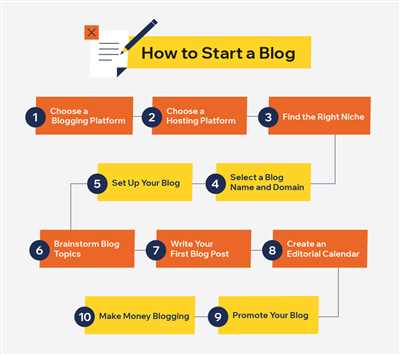
Starting a blog doesn’t have to be an expensive endeavor. In fact, there are many ways to make a blog for free or with a small budget. There are several platforms available that allow you to create and host a blog within minutes, such as WordPress.com, Blogger, and Wix. These companies offer user-friendly interfaces and customizable templates, making it easy for anyone to create a professional-looking blog.
While some companies may charge a fee for additional features or a custom domain, many platforms offer free plans that come with basic functionality. This means you can have a blog up and running without spending a dime. However, if you’re serious about blogging and want to cultivate a long-term audience, investing a little more in your blog can be worth it.
One of the key things to consider when starting a blog is the consistency of your postings. The more frequently you post fresh, unique content on your blog, the more likely it is to attract traffic. This means you’ll need to plan out your topics and create a schedule to ensure you’re consistently publishing new posts.
To make your blog more visible to search engines and attract organic traffic, you’ll also need to learn about keyword research and optimization. Using tools like Google Keyword Planner, you can identify long-tail keywords and optimize your blog posts accordingly. This will help drive targeted traffic to your blog and increase your chances of ranking higher in search engine results.
Another important aspect of blogging is building an audience. This can be done by promoting your blog through various channels, such as social media, email marketing, and guest posting on other blogs in your industry. Engaging with your readers and encouraging them to share your content can also help expand your blog’s reach.
While blogging can be a fun and creative outlet, it can also be a valuable tool for businesses. Many companies use blogs to establish their authority in the industry, provide valuable information to their audience, and generate leads. By creating a blog with a professional tone and addressing industry-related topics, businesses can show their expertise and build trust with their target audience.
In conclusion, starting a blog doesn’t have to be expensive. With the right planning and tools, you can create a blog for free or with a small budget. However, if you want to make your blog more effective and attract a larger audience, it may be worth investing in additional features and promoting your blog through various channels. Whether you’re a beginner or an experienced blogger, there’s always something new to learn and ways to improve your blog.
- Use free blogging platforms like WordPress.com, Blogger, or Wix.
- Invest in a custom domain and additional features if necessary.
- Create a consistent posting schedule and plan out your topics.
- Learn about keyword research and optimization to attract organic traffic.
- Promote your blog through social media, email marketing, and guest posting.
- Show expertise and address industry-related topics to build trust.
- Create engaging content and encourage reader interaction.
Can’t I just use one of those free platforms to start a blog
If you’re considering starting a blog, using a free platform may seem like an easy and convenient solution. After all, why pay for something when you can get it for free, right?
Well, maybe not. While free platforms like Blogger or WordPress.com can be a good start for some, they also come with their limitations and downsides.
Firstly, these platforms have a lot of competition. There are millions of blogs out there, and standing out from the crowd can be a challenge. Free platforms may restrict your ability to customize your blog’s design, making it harder to create a unique and appealing look.
What’s more, when you start a blog on a free platform, you don’t fully own your content. The company providing the platform has control over it, and they can suspend or delete your blog at any time without warning. This means that all the time and effort you put into building your blog and attracting an audience could be gone in an instant.
Additionally, free platforms often limit your ability to monetize your blog. If you’re looking to make money from your blog through e-commerce, ads, or sponsored content, a free platform may not provide the necessary features and flexibility.
Moreover, free platforms may not offer all the tools and resources you need to effectively optimize your blog for search engines. This can make it harder for potential readers or customers to find you through online searches. To rank well in search engines, you need to focus on keyword research, on-page optimization, link building, and consistency in publishing quality content.
Lastly, if you’re serious about blogging and want to establish yourself as an expert in your niche, having a custom domain name (e.g., www.yourblog.com) can help build credibility. With a free platform, your domain will include the platform’s name, such as yourblog.blogspot.com or yourblog.wordpress.com.
In summary, while free blogging platforms may be a quick and easy way to get started, they come with limitations and risks. If you’re committed to blogging in the long term and want more control, flexibility, and opportunities to monetize, it’s worth considering investing in a self-hosted platform like WordPress.org.
Do I need to be one of those tech geniuses from TV to start a blog
Do you ever watch those TV shows where there’s always that one tech genius who can do incredible things with just a few clicks on a keyboard? Well, I’m here to tell you that starting a blog isn’t like that at all. You don’t need to be a tech genius to start a blog.
Maybe you’re thinking, “But wait, isn’t blogging all about technology and coding?” The truth is, while having some basic technical knowledge can be helpful, it’s not a requirement. There are plenty of easy-to-use platforms or websites that can help you build your blog without any coding knowledge. Blogging is more about sharing your thoughts and ideas with the world than it is about complex technical skills.
Also, starting a blog does not mean you have to be a professional writer. Sure, having good writing skills is a plus, but you don’t need to be a best-selling author to attract an audience. Blogging is about having a voice and sharing your unique perspective on various topics, whether through written content, videos, or any other medium that suits you.
One of the great things about blogging is that you have full control over what you want to write about and how you want to present it. Want to share your thoughts and experiences about traveling, cooking, or even daily life? Go for it! The only limit is your imagination.
It’s important to note that starting a blog isn’t a get-rich-quick scheme. While there are bloggers out there who have turned their blogs into successful businesses, it takes time, effort, and a well-thought-out plan to make that happen. If your goal is solely to make money, blogging may not be the right choice. However, if you have a genuine passion for a specific topic and enjoy sharing your knowledge and experiences, blogging can be a fulfilling and rewarding endeavor.
When it comes to attracting visitors to your blog, there are a few things you can do. First, make sure your content is relevant and valuable to your target audience. Use keywords and optimize your blog posts for search engines like Google to increase your chances of appearing in search results. Additionally, consider sharing your blog posts on social media platforms to reach a wider audience and encourage engagement.
If you’re just starting out, it’s also helpful to learn from other successful bloggers. Take the time to read their blogs and see what makes them effective. Pay attention to the topics they cover, the style of their writing, and how they engage with their readers. Learning from others can provide valuable insights and inspiration for your own blogging journey.
In conclusion, you don’t need to be a tech genius or a professional writer to start a blog. Blogging is about sharing your thoughts, ideas, and experiences with the world. Whether you’re interested in starting a personal journal or building a platform for your business, blogging offers a great solution. So, don’t let the idea of being a tech genius from TV discourage you – anyone can start a blog and make it a success!
Why Start a Blog
Starting a blog is one of the most popular ways to get into the world of online content creation. It all began with the internet boom, where anyone with a computer and an internet connection could start their own website and share their thoughts and ideas with the world.
But why should you start a blog? There are several reasons why starting a blog can be a great idea:
| 1. It’s Easy | Starting a blog is relatively easy and requires little to no technical knowledge. There are plenty of tools and platforms available that can help you set up your blog in just a few steps. |
| 2. Cultivate an Audience | By starting a blog, you have the opportunity to attract a large audience and build a community around your content. With time and effort, you can turn your blog into a platform that people turn to for information and insights. |
| 3. Increase Your Authority | Having a blog can help establish you as an authority in your industry. When you consistently produce high-quality content and provide value to your readers, they’ll see you as a trustworthy source of information. |
| 4. Attract Customers and Brands | Blogging can also be a great way to attract customers and work with brands. Companies and brands are always looking for ways to reach their target audience, and if your blog has a sizable audience, they’ll likely want to collaborate with you. |
| 5. Improve Your Online Presence | A blog can help improve your online presence and increase your visibility in search engines. By optimizing your blog posts with relevant keywords and providing valuable content, you can rank higher in search engine results and drive more organic traffic to your site. |
In conclusion, starting a blog is a worthwhile endeavor. Whether you’re looking to share your thoughts and experiences, build an online presence, or attract customers and brands, blogging can help you achieve your goals. So why not start a blog today and see where it takes you?
What is a blog used for
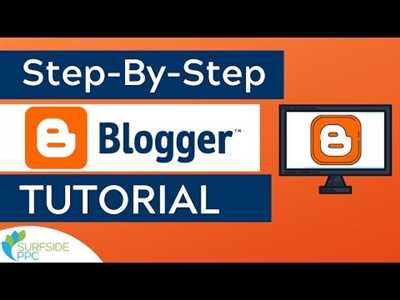
A blog is a platform where individuals or businesses can share their thoughts, ideas, and information on various topics. It is a way to communicate with a larger audience and attract traffic to the blog.
Blogs are used for a variety of purposes:
- Creating a presence: Blogs help in creating an online presence. It allows individuals or businesses to establish themselves as experts in their industry and build credibility.
- Sharing information: Blogs offer a platform to share valuable information on specific topics. They provide a way to communicate and educate the audience on various subjects.
- Attracting traffic: Blogs can attract a significant volume of traffic if done right. By publishing fresh and relevant content, blogs can rank higher in search engine queries and drive more traffic to the website.
- Engaging with the audience: Blogs encourage interaction and engagement with the audience. Readers can leave comments, ask questions, and share their thoughts, creating a community around the blog.
- Building a brand: Blogs help in building and maintaining a brand’s image. By consistently publishing high-quality content, a blog can showcase the brand’s voice and distinct style.
- Driving sales: Blogs can be used as a tool to promote products or services. By creating informative articles or product reviews, blogs can attract potential customers and drive sales.
Whether you are a beginner or an experienced blogger, it is important to have a plan and follow these steps to create a successful blog:
- Choose a niche or topic that interests you and has the potential to attract an audience.
- Research and learn about the industry to ensure you provide accurate and valuable information.
- Create a blog on a reliable platform, such as WordPress or Blogger.
- Plan your content strategy and decide the frequency of publishing new blog posts.
- Write engaging and well-researched articles that are easy to read and understand.
- Keep your blog design clean and user-friendly.
- Promote your blog on social media and other online platforms to drive traffic.
- Interact with your audience by responding to comments and questions.
- Cultivate relationships with other bloggers and collaborate on guest posts or collaborations.
- Regularly analyze your blog’s performance and make necessary improvements.
With proper planning and consistent efforts, a blog can be a valuable source of information, help build an online presence, and attract a loyal audience.
1 To help your company rank on search engines
When it comes to running a business, ranking on search engines is crucial for attracting leads and earning quality traffic. The higher your website ranks on search engine results pages (SERPs), the more likely it is that users will click on your website and become potential customers.
In today’s digital age, people rely heavily on search engines like Google to find the information, products, and services they need. Whether someone is looking for the best accounting software or the latest TV series to binge-watch, they turn to search engines to streamline their search process.
That’s why it’s essential to create relevant and engaging content that aligns with industry trends and user search intent. By consistently publishing valuable blog articles, you can establish your company as a credible source of information and improve your chances of ranking higher on search engine results.
But how do you go about creating a blog that can help your company rank on search engines? Here are some tips to keep in mind:
1. Understand your target audience and industry: Before you start writing, it’s crucial to know who you’re writing for and what they want to learn. Conduct keyword research to identify the topics your target audience is searching for and create content that addresses their needs and pain points.
2. Have a plan and stick to it: Consistency is key when it comes to blogging. Set a regular publishing schedule and stick to it. Whether it’s once a week, twice a month, or once a month, make sure you have a plan in place to consistently create and publish valuable content.
3. Optimize your content for search engines: To improve your chances of ranking higher on search engines, optimize your blog posts with relevant keywords, meta descriptions, and headers. Use tools like Yoast SEO to guide you in optimizing your content for better visibility.
4. Make your content shareable: Encourage readers to share your blog posts by including social sharing buttons and creating engaging content worth sharing. This will help increase your reach and attract more traffic from social media platforms.
5. Focus on quality over quantity: While it’s important to keep posting regularly, remember that quality should always come first. Create long-form, in-depth articles that provide value to your readers rather than short, generic ones that don’t offer much insight.
6. Stay up to date with industry trends: The digital landscape is ever-evolving, and what works today may not work tomorrow. Stay informed about the latest industry trends, algorithm updates, and best practices to ensure your blog stays competitive.
7. Learn from your competitors: Take a look at what other businesses in your industry are doing and learn from their successes and failures. This can give you valuable insights into what strategies are working and what you can do to stand out from the competition.
Creating a blog that helps your company rank on search engines requires time, effort, and a strategic approach. But with consistency, relevant content, and a focus on user experience, you can boost your search engine ranking and attract more traffic to your website.
Remember, search engine optimization (SEO) is an ongoing game, and it’s worth investing the time and resources into improving your ranking. Don’t worry if you’re not a technical guru or an expert in SEO. Focus on creating valuable content and providing a great user experience, and the ranking will follow.
2 To share information about a given topic and become an expert in an industry
One of the main reasons people start blogging is to share information about a specific topic and establish themselves as experts in their industry. Blogging allows you to present data, fresh insights, and relevant information to those who are interested in a particular subject.
By focusing on a specific niche or area of interest, you can play a crucial role in providing valuable content to your audience. Sharing your expertise and knowledge about a given topic can attract a large amount of traffic to your blog, as people are always looking for answers and insights in their areas of interest.
One of the first steps in becoming an expert in your field is to have a plan. Determine what your blog’s focus will be and how much time and effort you are willing to dedicate to it. Google’s Matt Cutts once said, “The number one thing you need to do is to write a unique piece of content, making sure it’s really educational and useful.” This means creating high-quality, informative, and valuable content that stands out in your industry.
Thanks to the abundance of easy-to-use blogging platforms and tools, anyone can now start a blog and share their insights with the world. However, it’s important to remember that blogging is not just about making yourself heard; it’s about helping others, building a community, and engaging with your readers.
Blogging also allows you to keep up with the latest trends and stay updated on industry news. By consistently producing valuable content, you’ll attract more traffic, build authority, and earn the trust of your audience. Over time, you can become a go-to resource for people looking for information or guidance in your niche.
Sharing valuable content not only helps your readers, but it also benefits your own personal growth. As you research and write about different topics, you’ll gain a deeper understanding of your industry and the issues that matter to your audience. This knowledge can be valuable for your own career or business insights.
Additionally, blogging can be a great way to stand out in a competitive market. By sharing unique and valuable insights, you’ll distinguish yourself from the competition and position yourself as an authority figure in your industry.
While blogging can be a personal hobby, it can also be a means of generating income. Many successful bloggers earn a significant amount of money through sponsored content, advertising, or by selling their own products or services. However, it’s important to note that earning a steady income from blogging requires consistent effort, a large audience, and high-quality content.
One of the key benefits of blogging is that it allows you to connect with like-minded individuals, grow your network, and engage with your audience. By encouraging comments and feedback, you can create a community of individuals who share a common interest and are eager to learn from each other.
In conclusion, blogging is an effective way to share information, establish yourself as an expert, attract traffic, and engage with your audience. By following a strategic plan, producing high-quality content, and staying consistent, you can build a successful blog that not only benefits others but also helps you grow personally and professionally.
3 To attract visitors to your site and turn those visitors into leads
When it comes to running a successful blog, one of the most important factors is attracting visitors to your site. Without a steady stream of traffic, it can be challenging to turn those visitors into leads, and ultimately, into customers. In this section, we will discuss three strategies to attract visitors and convert them into leads.
1. Improve your Google ranking
If you want to attract more visitors to your site, you need to rank higher in Google search results. This can be achieved by optimizing your website for relevant keywords and creating high-quality content that answers users’ queries. Long-form articles and informative videos are a great way to stand out from your competition and establish yourself as an authority in your niche.
Additionally, make sure your website is technically sound. Google prefers sites that are fast, mobile-friendly, and easy to navigate. By optimizing your site’s technical aspects, you can improve your Google ranking and attract more organic traffic.
2. Engage with your audience
Attracting visitors to your site is just the first step. To turn those visitors into leads, you need to engage with them and cultivate a relationship. Encourage your visitors to leave comments, ask questions, and share their thoughts. Respond to their comments promptly and provide valuable insights. This will help you build trust and establish yourself as an authority in your niche.
Consider creating a mailing list, offering free resources, or hosting webinars to further engage with your audience. By providing valuable information and solutions to their problems, you can earn their trust and turn them into leads.
3. Use social media and guest blogging
In addition to improving your Google ranking, you can also attract visitors and leads through social media and guest blogging. Social media platforms like Facebook, Twitter, and Instagram provide a great opportunity to promote your blog posts and engage with your audience on a personal level. Share snippets of your blog posts, create engaging videos, and use your unique voice to stand out from the competition.
Guest blogging is another effective way to attract visitors and build your authority. By writing guest posts for other blogs in your niche, you can tap into their existing audience and redirect traffic back to your site. Make sure to choose blogs with a similar target audience and provide valuable content that aligns with their interests. This will help you establish yourself as an authority and attract relevant visitors to your site.
In conclusion, attracting visitors to your site and converting them into leads requires a combination of technical optimizations, engaging content, and strategic marketing efforts. By improving your Google ranking, engaging with your audience, and leveraging social media and guest blogging, you can attract a steady stream of visitors and turn them into leads for your online business.
4 To cultivate an online community and engage with an audience
Engaging with your audience is a crucial component of successful blogging. Cultivating an online community can help you build a loyal following and establish yourself as an authority in your niche. Here are four key ways to cultivate an online community and engage with your audience:
1. Find your unique voice: To stand out in the crowded blogosphere, you need to develop a distinct voice that resonates with your audience. Whether you’re a beginner’s guide to a specific topic or an expert in e-commerce, finding your own style and tone will help you connect with your readers on a deeper level.
2. Create quality content consistently: Consistency is key when it comes to building an online community. Regularly posting valuable and informative content will keep your audience coming back for more. Make sure to cover a variety of topics that are relevant to your niche and offer insights and solutions to your readers’ queries.
3. Engage with your readers: Building an online community is all about fostering a two-way conversation. Responding to comments on your blog posts and engaging with your readers on social media platforms like Twitter and Facebook will help you establish a strong connection with your audience. Encourage feedback, ask questions, and show genuine interest in what your readers have to say.
4. Utilize SEO techniques: SEO (search engine optimization) is crucial for improving the visibility and rankings of your blog pages on search engines like Google. By optimizing your blog posts with relevant keywords and meta tags, you can attract more organic traffic and reach a wider audience. Don’t worry if you’re not very technical – there are many free and paid tools that can help you optimize your blog for search engines.
Remember, building an online community takes time, effort, and consistency. By following these four steps, you can create an engaged audience that will help your blog grow and thrive.
Is Starting a Blog Worth It
Starting a blog is a popular way for people to share their expertise, insights, and information on various topics. But is it really worth it? Can’t people just turn to other sources for the information they need?
The answer is yes, starting a blog is definitely worth it. Here are 3 reasons why:
- Build Authority and Expertise: Starting a blog allows you to establish yourself as an authority in your industry. By consistently publishing high-quality content, you can showcase your expertise and position yourself as a go-to source of information. People are more likely to trust and recommend someone who has a solid online presence.
- Reach a Wider Audience: Blogging opens up opportunities to reach a larger audience than you would through other means. By using long-tail keywords and optimizing your content for search engines, you can rank higher in search results and attract more visitors to your blog. This can lead to more leads, partnerships, and opportunities in the long run.
- Streamline Your Projects: Blogging is a helpful tool for organizing your thoughts and ideas. It allows you to keep track of your progress, plan your content ahead, and stay focused on your goals. Having a blog also encourages you to stay updated on industry trends and stay on top of the latest news and developments.
So, if you’re wondering whether starting a blog is worth it, the answer is a resounding yes! With the right tools and strategy, you can create a blog that not only benefits yourself but also provides value to others. Don’t expect instant results, but with time and dedication, blogging can have a positive impact on your personal and professional life.
How to blog for your business
When it comes to promoting your business online, blogging can play a crucial role in boosting your online presence. Not only does it help answer potential customers’ questions, but it also allows you to share valuable insights about your industry and create fresh and helpful content.
Before you start blogging for your business, there are a few things you need to consider. First and foremost, think about your target audience and the topics they’ll likely find interesting. Make sure to plan your blog posts in advance, so you have a clear idea of what you’ll be posting about each month.
When creating blog posts, it’s important to keep a consistent tone and writing style. This will help establish a distinct voice for your brand and encourage readers to keep coming back for more. Additionally, consider incorporating keywords related to your industry and products to improve your blog’s ranking on search engines like Google.
One helpful feature to consider is allowing readers to leave comments and engage with your blog posts. This encourages interaction and can help build a sense of community around your brand. Be sure to reply to comments and answer any questions to show that you’re actively involved.
Another tip when blogging for your business is to encourage social sharing. Include social media share buttons on your blog posts to make it easier for people to share your content with their network. This can help increase your online visibility and drive more traffic to your website.
When it comes to the technical aspect of blogging, don’t worry if you’re not tech-savvy. There are many user-friendly platforms and tools available that make creating and managing a blog a breeze. These platforms often offer templates and customization options, allowing you to create a professional-looking blog without any coding knowledge.
Consistency is key when it comes to blogging for your business. Aim to post regularly, whether that’s once a week or once a month. Regular posting helps keep your blog active and shows that your business is dedicated to providing valuable content to its audience.
Remember, your blog is an extension of your brand, so make sure the content aligns with your overall business goals and values. Use the blog as an opportunity to showcase your expertise and provide helpful information to your readers.
Lastly, blogging for your business is not just about promoting your products or services. It’s about building relationships with your audience and positioning yourself as an industry expert. Don’t be afraid to share personal anecdotes or insights in your blog posts to make them more relatable and engaging.
In conclusion, blogging for your business can be a game-changer. It’s an easy and cost-effective way to connect with your target audience, drive traffic to your website, and establish yourself as a trusted authority in your industry. So, don’t wait any longer – start blogging and reap the benefits for your business!
Create a professional business plan
When it comes to blogging, having a clear and well-thought-out business plan is essential. Not only will it help you define your goals and objectives, but it will also provide you with a roadmap to achieve them. In this section, we will discuss the steps you need to take to create a professional business plan for your blog.
Step 1: Define your niche and target audience
- Before you start writing your business plan, it’s important to have a clear idea of the potential niche you want to focus on. Consider what you are passionate about and what industry you have expertise in.
- Identify your target audience and understand their needs, preferences, and pain points. This will help you tailor your content and marketing efforts to attract and retain them.
Step 2: Research your competition
- It’s essential to know who your direct and indirect competitors are in the blogging industry. Analyze their blogs, rank on search engines, and the strategies they use to stand out.
- Focus on the blogs that are ranking high in search engines for keywords related to your niche. Analyze their content, search volume, and the features they offer.
- Shorter searches such as “how-to” or “step-by-step” guides might also be a good feature to play around with, as they tend to attract a lot of organic traffic.
Step 3: Establish your authority
- Building credibility and authority in your niche is essential for the success of your blog. Create high-quality content that offers valuable information to your visitors.
- Focus on creating content that provides a solution to a problem or answers a question that your target audience is really looking for.
- Recommend or feature other industry experts and brands on your blog. This will help you establish yourself as an authority and attract a wider audience.
Step 4: Optimize for search engines
- Optimizing your blog for search engines is crucial to attract organic traffic. Make sure to use relevant keywords in your blog post titles, headings, and throughout your content.
- Create descriptive meta tags and include targeted keywords in them to increase your chances of ranking higher in search engine results.
- Focus on both on-page and off-page SEO techniques to improve your blog’s visibility and ranking on search engines.
Step 5: Consider monetization options
- If you’re planning to turn your blog into a business, you’ll need to consider different monetization options. E-commerce, affiliate marketing, sponsored posts, and selling digital products are some of the popular ways to earn money from a blog.
- Research and identify the monetization options that are suitable for your niche and target audience. Make sure to create a diversified income stream to reduce dependency on a single source.
Step 6: Cultivate consistency and quality
- Consistency is crucial when it comes to blogging. Plan a posting schedule and stick to it. This will help you attract and retain visitors who expect new content from you.
- Create high-quality content that is valuable and serves the needs of your target audience. Invest time and effort into research, writing, and editing to ensure the content you provide is top-notch.
- Use tools and resources to help you optimize your content, improve readability, and fix any technical issues that may affect your blog’s performance.
Step 7: Establish your online presence
- Building an online presence is essential for the success of your blog. Utilize social media platforms, guest blogging, and networking opportunities to promote your blog and attract more visitors.
- Consider creating accounts on popular social media platforms such as Facebook, Twitter, and Instagram to reach a wider audience and engage with your readers.
- Join relevant industry groups and forums to establish yourself as an expert in your niche and connect with other bloggers and influencers in your industry.
Step 8: Stay up-to-date with industry trends
- The blogging industry is constantly evolving, so it’s important to stay informed about the latest trends and changes. Subscribe to industry newsletters, follow industry blogs, and attend conferences or webinars to keep yourself updated.
- Stay informed about the latest updates and changes in search engine algorithms, content marketing strategies, and other industry-related news. This will help you adapt your strategies and stay ahead of the game.
Creating a professional business plan for your blog is a crucial step towards achieving your blogging goals. It will help you define your niche, attract visitors, establish your authority, and monetize your blog effectively. By following the tips and steps mentioned above, you’ll be well on your way to creating a successful and profitable blog.
1 Have a distinct tone and voice
One of the most important steps in becoming a successful blogger is to have a distinct tone and voice. With so many blogs out there, it’s crucial to stand out and differentiate yourself from the rest.
When you have a unique voice, people will be able to recognize your brand and content more easily. It helps to build a sense of trust and authority in your niche.
But how do you cultivate a distinct tone and voice? First, you need to know your audience. Understand who you are writing for and what kind of content they are looking for. This will guide your writing style and the way you present your ideas.
Next, it’s important to be consistent with your tone and voice. Whether you are posting short tips or longer articles, make sure that your writing style remains the same.
You can also draw inspiration from other bloggers and thought leaders in your niche. Take note of their writing styles and learn from them. However, be careful not to imitate them too closely. You want to create your own unique voice, not be a copycat.
Engage with your audience and encourage them to interact with your content. Ask questions, answer comments, and be responsive. This will help you build a community around your blog and earn people’s trust.
Lastly, don’t be afraid to share your own thoughts and opinions. People want to hear your perspective and see your individuality shine through. Be authentic and genuine in your writing.
Having a distinct tone and voice not only makes your blog more interesting, but it can also help with your SEO efforts. Google and other search engines love unique and valuable content, so having a unique voice can help you stand out from the competition.
Remember, blogging is a form of self-expression, so let your personality come through in your writing. It may take some time and work to find your unique voice, but it will be worth it in the end.
2 Answer people’s queries
One effective way to engage with your audience and build a loyal following is by answering people’s queries. When people have questions, they often turn to search engines like Google to find a solution. By creating content that directly addresses these queries, you’re more likely to have your blog posts appear in relevant searches and attract more traffic.
There are several ways you can go about answering people’s queries:
| 1 | Shorter content | If you’re just starting out as a blogger, it’s important to consider the attention span of your audience. Shorter blog posts, around 500-700 words, are easier to read and digest. They’re also more likely to be shared on social media, increasing your reach. |
| 2 | Long-form content | For those who are ready to take their blogging to the next level, longer, more comprehensive articles can be worth the effort. These articles provide more value to the reader and can help establish you as an expert in your industry. |
| 3 | Focus on personal insights | By sharing personal experiences and insights, you can add a unique voice to your blog and make your content more relatable. People are more likely to engage with content that feels authentic and personalized. |
| 4 | Answer technical questions | If you’re in the tech industry or have expertise in a specific technical area, consider creating content that solves technical problems. Tech-related blogs are popular, and there’s a constant stream of people searching for solutions to their technical issues. |
| 5 | Provide actionable tips | Instead of just explaining a concept, give your readers practical tips they can implement to achieve a specific goal. This will make your content more helpful and valuable to them. |
| 6 | Research data to support your points | Backing up your claims with data and statistics can help build credibility and trust with your audience. It shows that you’ve done your research and adds a level of authority to your content. |
Answering people’s queries not only helps them find the information they need, but it also leads to increased engagement, insights into what people in your industry are searching for, and improved ranking on search engine results pages. Don’t underestimate the power of providing valuable answers to people’s questions!
3 Be consistent
Consistency is key when it comes to blogging. To build a loyal audience, you need to regularly put out relevant and valuable content. By consistently updating your blog, you’ll attract more visitors and turn them into regular readers.
When you start a blog, it’s important to focus on a specific topic or niche. This will help you attract a target audience who are interested in what you have to say. Whether it’s about your hobby, a topic you’re passionate about, or something you want to learn more about, make sure your content is centered around your chosen theme.
Consistency also applies to the frequency of your blog posts. Decide how often you want to publish and stick to it. Whether it’s once a week or three times a week, make a schedule and follow through. Readers will come to expect your new posts, and by consistently delivering content, you’ll gain their trust.
Being consistent doesn’t mean you have to play the numbers game and focus solely on quantity. Quality is just as important (if not more) as quantity. Make sure each blog post provides value to your readers and is well-written and well-researched.
If you’re a beginner blogger, it can be overwhelming to think about consistently producing high-quality content. But don’t worry, there are methods to make it easier for you. One such method is the long-tail keyword strategy. By starting with long-tail keywords, you can attract more targeted and less competitive traffic to your site.
Consistency also applies to your branding and promotion efforts. Make sure your blog has a clean and professional design that reflects your brand. Use social media, email marketing, and SEO to promote your content and attract more visitors. By being consistent with your branding and promotion, you’ll build a strong presence in your niche.
Consistency is not only important for your blog, but it’s also recommended by industry experts like Matt Cutts, who formerly worked at Google. He suggests that being consistent with your content updates can help you rank higher in search engine results.
Furthermore, being consistent with your blogging efforts can lead to other opportunities. Companies may reach out to you for collaborations, sponsorships, or to write guest posts on their own blogs. Once you establish yourself as a consistent and reliable blogger, doors will open up for you.
In conclusion, consistency is crucial for success in the blogging game. By consistently delivering high-quality content and being consistent with your branding and promotion, you’ll attract more readers and gain their trust. So, keep at it and enjoy the rewards that come with being a consistent blogger!
4 Make your content stand out
When it comes to blogging, one of the most important things you can do is make your content stand out. With so many blogs available today, you need to find means of making your blog unique and appealing to readers. Here are some tips on how to do just that:
| Focus on a niche: | Don’t try to cover every topic under the sun. Instead, choose a specific niche and become an authority in that area. This will help you attract people who are looking for information on that particular topic. |
| Show your personality: | People want to connect with a real person, so don’t be afraid to let your personality shine through in your writing. Use your own unique voice and tone to engage your readers. |
| Keep it relevant: | Make sure your content is always up to date and relevant to your audience. Take the time to research and stay informed about the latest trends and news in your niche. |
| Be consistent: | Regularly update your blog with fresh and valuable content. Stick to a consistent posting schedule so your readers know when to expect new content from you. |
| Play with different formats: | Don’t just stick to text-based articles. Experiment with different types of content like videos, infographics, and podcasts to keep your blog interesting and engaging. |
| Build your authority: | Establish yourself as an expert in your niche by sharing valuable and well-researched information. Back up your claims with credible sources and data. |
| Encourage interaction: | Ask your readers to leave comments, share their thoughts, and engage with your content. This will create a sense of community and make your blog more interactive. |
| Optimize for search engines: | Learn the basics of SEO (Search Engine Optimization) to improve your blog’s visibility in search engine results. Use relevant keywords, meta tags, and optimize your site’s structure. |
| Share on social media: | Utilize various social media platforms to share your blog posts and reach a larger audience. Create distinct and engaging posts that will encourage people to click and visit your blog. |
| Learn from others: | Study successful blogs in your niche and learn from their strategies. Take note of what works for them and adapt those techniques to fit your own style and audience. |
By following these tips, you can make your blog stand out from the competition and attract a loyal and engaged audience. Remember, it’s not about being the best or the only one in your niche, but rather about providing unique and valuable content that is worth people’s time.

